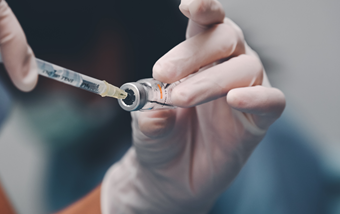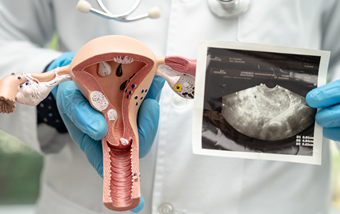Low sperm count can have a significant impact on fertility and successful conception. Studies show that male factor infertility accounts for 30% of fertility issues in heterosexual couples, as well as an additional 40 % of the time where both parties experience fertility obstructions. In this blog, we address the important issue of low sperm count and provide guidance and advice for readers seeking solutions to this common fertility concern.
What is a Low Sperm Count?
A low sperm count, medically known as oligospermia, is a condition defined as having a below average concentration of semen present in ejaculate. This is categorised as being fewer than 15 million sperm per millilitre of semen. This condition can impact male fertility and reduce the chances of natural conception.
What Causes a Low Sperm Count?
Although there are various factors which can affect sperm count, lifestyle can typically have the greatest impact. Poor diet, smoking, excessive alcohol consumption, and sedentary lifestyle can contribute to a low sperm count. Adopting a healthy diet, regular exercise, and avoiding harmful habits can improve this. Alternatively low sperm count can be caused by hormonal imbalances, infections, varicocele, and genetic factors. These are considered biological factors however, there are external/environmental factors which can affect sperm count. Exposure to toxins, radiation, and additionally chemotherapy can reduce sperm count. Medical practitioners often advise cancer patients that there is the option to preserve their fertility before cancer treatment to enable parenthood with a genetic link post treatment.
How Does a Low Sperm Count Impact Fertility?
A low sperm count can significantly reduce the likelihood of conception, as fewer sperm available for fertilisation may hinder the fertilisation process. This makes it harder for sperm to successfully penetrate the egg. Couples facing male factor infertility may experience prolonged effort to conceive. It is essential to address this issue to improve fertility outcomes.
Can You Still Get Pregnant with a Low Sperm Count?
Despite having a low sperm count, it is still possible to achieve pregnancy. Although it is more difficult to become pregnant naturally, there are various fertility treatments and interventions which can support those with oligospermia . Booking an Initial Consultation with our experts, accompanied by a sperm analysis, allows our specialists to gain insight into which treatments would best suit your individual needs.
What Treatments are there for a Low Sperm Count?
At abc ivf we offer treatment packages to support couples experiencing male factor fertility issues. Our IVF and IVF with ICSI packages can help patients to overcome the challenges posed by low sperm count and increase the chances of successful conception.
IVF - In vitro fertilisation involves fertilising the eggs outside of the body, utilised when there are obstructions or difficulties conceiving naturally.
ICSI - Intracytoplasmic sperm injection can be used in addition to IVF. this process involves directly injecting the sperm into the egg to increase the chance of successful fertilisation. This is often beneficial for male factor fertility issues.
Addressing a low sperm count is crucial for improving fertility outcomes. By exploring the various treatments available at abc ivf, individuals can take proactive steps towards enhancing their fertility. To learn more about these treatments, visit our treatment page for detailed information and guidance, or contact our team who will be happy to answer any questions you may have.




